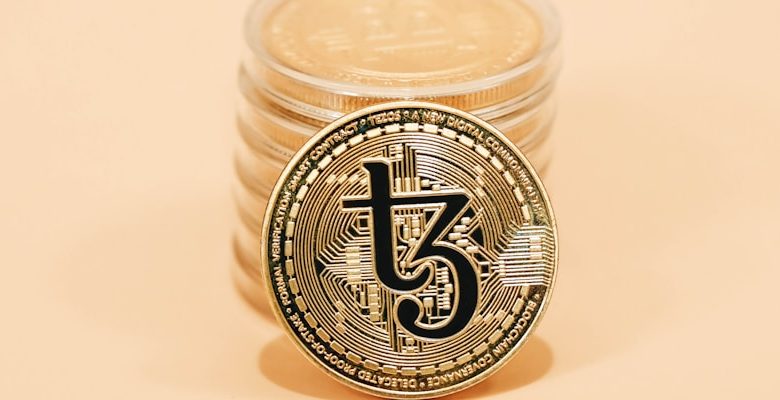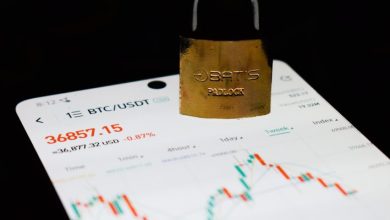Blockchain and Real Estate: Tokenizing Property Investments

- Understanding Blockchain Technology in Real Estate
- The Rise of Tokenization in Property Investments
- Benefits of Tokenizing Real Estate Assets
- Challenges and Opportunities in Real Estate Tokenization
- Regulatory Landscape for Tokenized Property Investments
- Case Studies: Successful Implementation of Blockchain in Real Estate
Understanding Blockchain Technology in Real Estate
Blockchain technology in real estate has been gaining traction in recent years as a way to revolutionize the traditional processes involved in property transactions. By leveraging blockchain, property investments can be tokenized, allowing for greater transparency, security, and efficiency in the real estate market.
One of the key benefits of blockchain technology in real estate is its ability to streamline the property buying and selling process. Through the use of smart contracts, transactions can be automated and executed in a secure and transparent manner. This not only reduces the need for intermediaries but also minimizes the risk of fraud and error.
Moreover, blockchain technology provides a decentralized and immutable ledger that records all transactions, ensuring that property ownership records are accurate and tamper-proof. This not only simplifies the due diligence process but also reduces the risk of disputes over property ownership.
Additionally, tokenizing property investments through blockchain allows for greater liquidity in the real estate market. By dividing properties into digital tokens, investors can buy and sell fractions of properties, making real estate investments more accessible and affordable to a wider range of individuals. This can potentially open up new opportunities for both investors and property owners alike.
Overall, blockchain technology has the potential to transform the real estate industry by making property transactions more efficient, transparent, and secure. As more companies and investors adopt blockchain solutions, the future of real estate investing looks promising with increased accessibility and liquidity in the market.
The Rise of Tokenization in Property Investments
The rise of tokenization in property investments is revolutionizing the real estate industry. Tokenization allows investors to purchase fractional ownership of properties through blockchain technology. This opens up new opportunities for smaller investors to diversify their portfolios and enter the real estate market at a lower cost.
Tokenization also provides greater liquidity to real estate investments, as tokens can be bought and sold on digital asset exchanges. This means that investors no longer have to wait years to see a return on their investment, as they can easily trade their tokens at any time.
Furthermore, tokenization offers increased transparency and security in property transactions. All property information is stored on the blockchain, making it easily accessible and verifiable. Smart contracts ensure that transactions are executed automatically once certain conditions are met, reducing the need for intermediaries and potential fraud.
Benefits of Tokenizing Real Estate Assets
Tokenizing real estate assets offers a myriad of benefits for investors looking to diversify their portfolio and enter the world of blockchain technology. By digitizing property investments, individuals can gain access to a more liquid and transparent market, allowing for greater flexibility and efficiency in trading assets. Additionally, tokenization enables fractional ownership, making real estate more accessible to a broader range of investors who may not have the capital to purchase an entire property.
Furthermore, tokenizing real estate assets can streamline the process of buying and selling properties, reducing the need for intermediaries and paperwork. This can lead to cost savings for both investors and property owners, as well as faster transactions. Additionally, blockchain technology provides increased security and transparency, as all transactions are recorded on a decentralized ledger that is immutable and tamper-proof.
Moreover, tokenizing real estate assets can open up new opportunities for global investment, allowing investors to diversify their portfolios across different markets and geographies. This can help mitigate risk and potentially increase returns over time. Additionally, tokenization can also enable real-time trading, providing investors with more flexibility and control over their investments.
In conclusion, tokenizing real estate assets has the potential to revolutionize the way properties are bought, sold, and managed. By leveraging blockchain technology, investors can benefit from increased liquidity, transparency, and efficiency in the real estate market. Whether you are a seasoned investor or new to the world of real estate, tokenization offers a promising avenue for maximizing returns and expanding your investment portfolio.
Challenges and Opportunities in Real Estate Tokenization
One of the main challenges in real estate tokenization is the lack of regulatory clarity surrounding this emerging technology. Investors and developers alike are hesitant to fully embrace tokenization due to the uncertainty of how it will be regulated by government authorities. However, this challenge also presents an opportunity for industry stakeholders to work together to establish clear guidelines and standards for tokenizing real estate assets.
Another challenge is the complexity of the technology itself. Blockchain and smart contracts can be difficult to understand for those who are not familiar with them, which can deter potential investors from participating in tokenized real estate projects. However, this challenge can be addressed through education and awareness campaigns that aim to demystify the technology and highlight its benefits.
On the flip side, one of the major opportunities in real estate tokenization is increased liquidity. By tokenizing real estate assets, investors can buy and sell tokens on secondary markets more easily than traditional real estate investments. This increased liquidity can attract a wider pool of investors who may not have had access to real estate investments before.
Additionally, real estate tokenization opens up the possibility of fractional ownership, allowing investors to own a portion of a property rather than the whole asset. This can lower the barrier to entry for investors who may not have the capital to purchase an entire property on their own. Fractional ownership also allows for diversification within a real estate portfolio, reducing risk for investors.
In conclusion, while there are challenges to overcome in real estate tokenization, such as regulatory uncertainty and technological complexity, there are also significant opportunities for increased liquidity, fractional ownership, and diversification. By addressing these challenges and seizing these opportunities, the real estate industry can unlock the full potential of blockchain technology in property investments.
Regulatory Landscape for Tokenized Property Investments
The regulatory landscape for tokenized property investments is still evolving as governments and regulatory bodies around the world grapple with how to classify and regulate these new digital assets. While some countries have embraced blockchain technology and tokenized real estate investments, others have taken a more cautious approach.
In many jurisdictions, property tokens are considered a form of securities, which means they are subject to regulations that govern the issuance and trading of securities. This can include requirements for disclosure, investor protection, and anti-money laundering measures. It is important for investors and issuers to understand and comply with these regulations to avoid running afoul of the law.
Some countries have created specific regulatory frameworks for tokenized assets, while others are still relying on existing securities laws to regulate them. This can create uncertainty for investors and issuers who are unsure of how their tokenized property investments will be treated by regulators.
Overall, the regulatory landscape for tokenized property investments is complex and varies from country to country. Investors and issuers should seek legal advice to ensure they are compliant with the relevant regulations in their jurisdiction. By staying informed and following best practices, they can navigate the regulatory environment and take advantage of the benefits of tokenized real estate investments.
Case Studies: Successful Implementation of Blockchain in Real Estate
Several case studies have showcased the successful implementation of blockchain in the real estate industry. These examples demonstrate the benefits of utilizing blockchain technology for tokenizing property investments. Here are some key instances of blockchain integration in real estate:
- A luxury apartment complex in New York City leveraged blockchain to tokenize ownership of individual units. This allowed investors to purchase tokens representing a share of the property, enabling fractional ownership and liquidity in the real estate market.
- A commercial real estate firm in London used blockchain to streamline the process of property transactions. By recording property titles and ownership information on a blockchain platform, the firm was able to reduce paperwork, minimize errors, and expedite the closing process.
- In Dubai, a real estate developer implemented blockchain to facilitate crowdfunding for new construction projects. Through tokenization, investors from around the world could participate in funding real estate developments, opening up new opportunities for global investment in the property market.
These case studies demonstrate the versatility and efficiency of blockchain technology in transforming the real estate industry. By tokenizing property investments, blockchain offers increased accessibility, transparency, and security for investors and property owners alike. As more real estate companies adopt blockchain solutions, the future of property investment is set to be revolutionized by this innovative technology.



